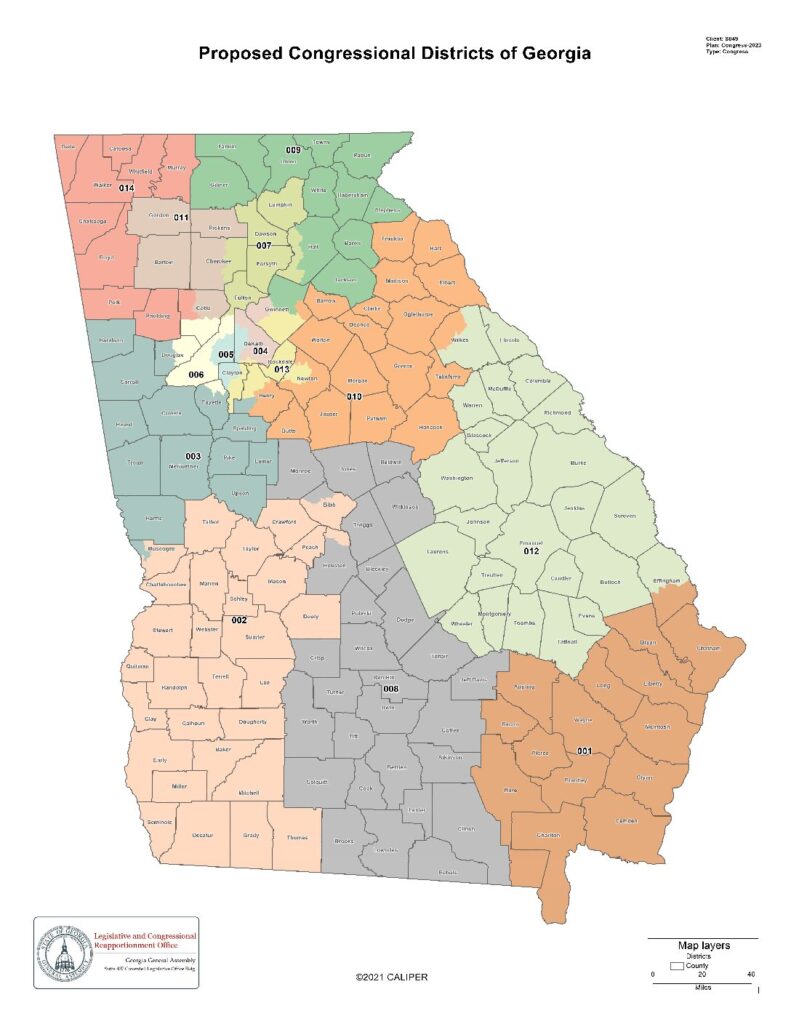
ATLANTA – Federal judges do not have the authority in voting rights cases to “reallocate political power between the two major political parties,” U.S. District Judge Steve Jones declared Thursday.
That was the crux of Jones’ ruling upholding the new legislative and congressional maps Georgia lawmakers drew during their recent special session.
Jones had ordered the General Assembly in October to redraw district lines the Republican-controlled legislature drew two years ago after voting rights and civil rights groups filed lawsuits claiming the maps violated Section 2 of the Voting Rights Act.
In a 516-page decision, Jones ordered lawmakers to draw one additional Black-majority congressional district, two more Black-majority state Senate districts, and five additional Black-majority Georgia House districts.
The consensus among political observers was that the new maps would result in Democrats gaining a seat in the state’s congressional delegation and reducing Republican majorities in the Georgia House and Senate.
But during a weeklong special session earlier this month, legislative leaders crafted maps that are expected to both retain the Republicans’ 9-5 advantage in the congressional delegation and allow the GOP to maintain control of the General Assembly.
“The committee and floor debate transcripts make clear that the General Assembly created the 2023 Remedial Congressional Plan in a manner that politically protected the majority party (i.e. the Republican Party) as much as possible,” Jones wrote in Thursday’s ruling on the congressional map. “However, redistricting decisions by a legislative body with an eye toward securing partisan advantage does not alone violate Section 2.”
Jones upheld the two new legislative maps using similar language.
In complying with the October ruling on the congressional map, lawmakers added a Black-majority district in western portions of metro Atlanta, as Jones had directed. But Republicans also eliminated a so-called “coalition” district in Gwinnett County – where neither Black, Hispanic, nor Asian voters constitute a majority but combined outnumber white voters.
In Thursday’s ruling, Jones declared the issue of coalition districts essentially moot because it was not brought up during the trial that led to his October ruling.
The judge also ruled that the Black-majority districts the General Assembly created in the new state House and Senate maps are in the areas of the state he declared in his October decision needed addressing.
U.S. Rep. Lucy McBath, D-Marietta, who won reelection last year in a new district after Republicans had drawn her out of her original district in 2021, declared after Thursday’s ruling that she will run next year in the new Black-majority district centered in western metro Atlanta. McBath currently represents the 7th Congressional District, the coalition district Republicans eliminated.
“I refuse to let a few extremist Republicans decide when my work in Congress is finished,” she said. “I hope that the judicial system will not allow the state legislature to suppress the will of Georgia voters. However, if the maps passed by the state legislature stand for the 2024 election cycle, I will be running for reelection to Congress in (the 6th District) because too much is at stake to stand down.”